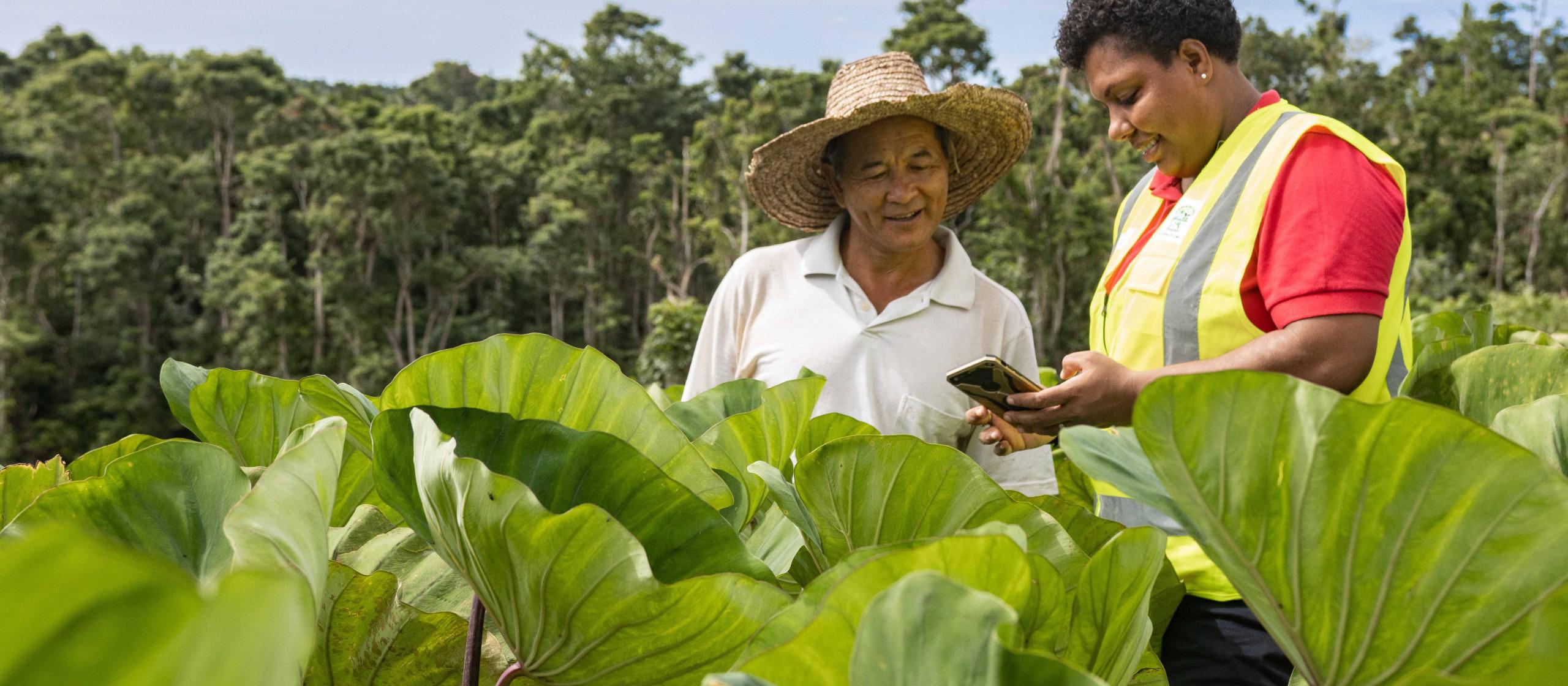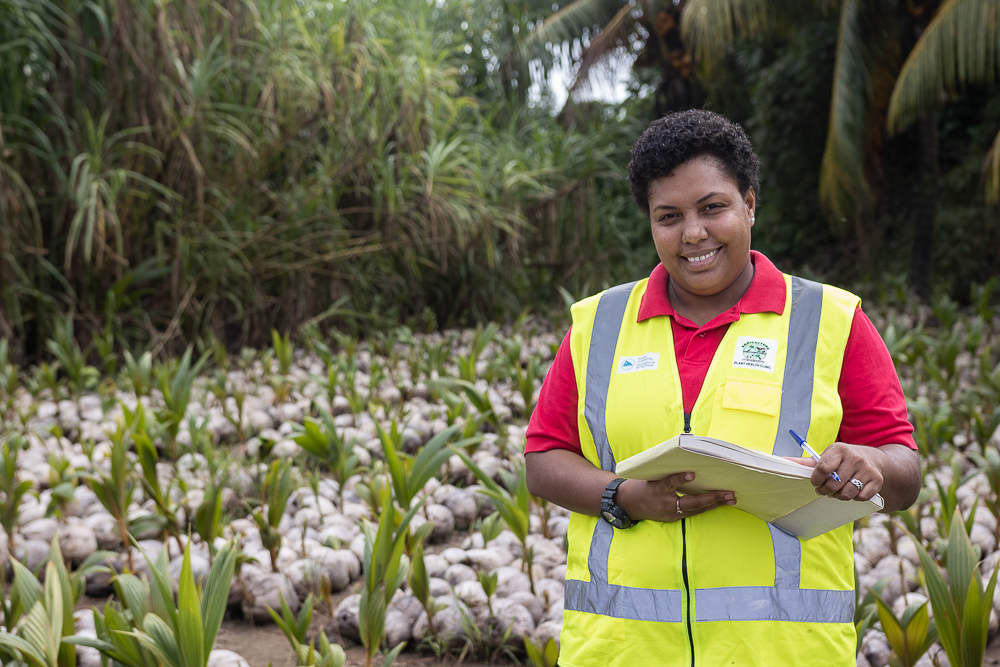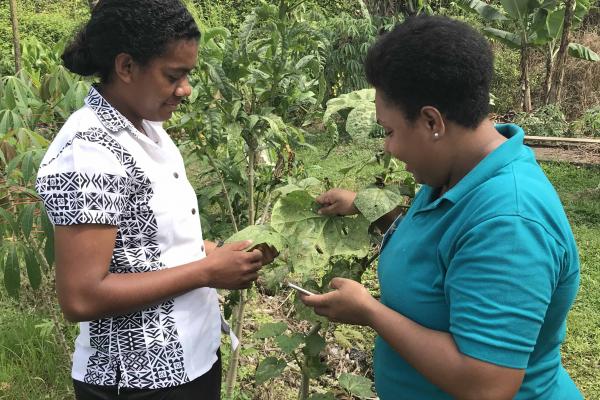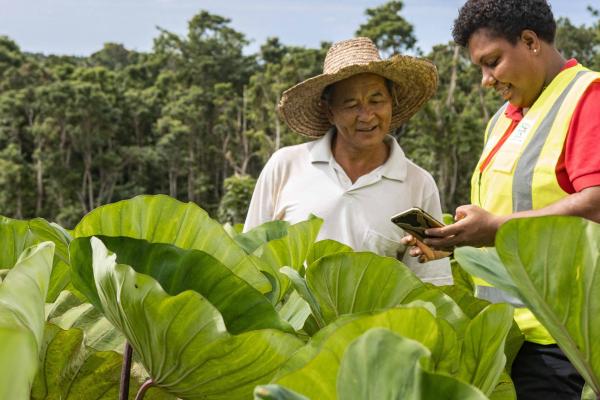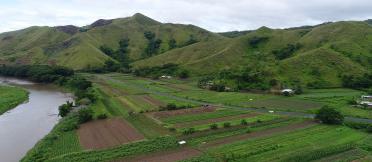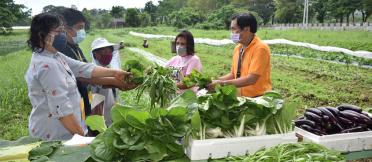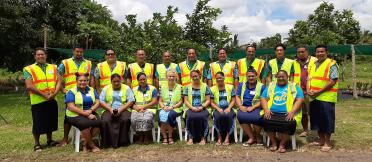- HomeHome
-
About ACIAR
- Our work
- Our people
-
Corporate information
- ACIAR Audit Committee
- Commission for International Agricultural Research
- Policy Advisory Council
- Agency reviews
- Executive remuneration disclosure
- Freedom of information (FOI)
- Gifts and benefits register
- Information publication scheme
- List of new agency files
- Contracts
- Legal services expenditure
- Privacy impact assessment register
- Commonwealth Child Safe Framework
- Benefits to Australia
- Careers
- 40 years of ACIAR
-
What we do
- Programs
- Cross-cutting areas
- Resources
- Where we work
-
Funding
- Research projects
- Fellowships
-
Scholarships
- John Allwright FellowshipScholarships to study in Australia for ACIAR partner country scientists to have Australian postgraduate qualifications
- ACIAR Pacific Agriculture Scholarships and Support and Climate Resilience Program
- Alumni Research Support Facility
- Publications
- News and Outreach
Date released
19 June 2020
With COVID-19 wreaking havoc around the globe, a team of ‘Plant Doctors’ in the Pacific islands is finding new ways to help farmers diagnose and treat plant disease remotely while in-person clinics are on hold.
In Pacific island countries, steps have been taken by authorities to limit the spread and impact of COVID-19, including citywide or nationwide lockdowns, the closure of international borders, physical distancing and allowing only essential services to operate.
In good news for farmers, a new cadre of plant health specialist—the Plant Doctor—has been deemed an essential service and continues to provide expertise and services to local farmers, albeit remotely.
Plant Doctors comprise a mix of local agriculture extension officers and members of civil society groups and agricultural non-government organisations who have been trained under a project supported by ACIAR. The project is a partnership between ACIAR, the University of Queensland and the Pacific Community (SPC) Land and Resources Division. Together they support Plant Doctors to deliver plant health services to farmers in Fiji, Tonga, Samoa, Papua New Guinea and Solomon Islands.
Building skills
In Fiji, Agricultural Fieldman Specialist Maca Vakaloloma works at the Lakena Agriculture Office in Nausori, in Eastern Viti Levu, and attended preliminary plant health clinic training to become a Plant Doctor.
Ms Vakaloloma says the plant health training has been life-changing for her in terms of her everyday work.
‘From these trainings I can identify common pests and diseases affecting crops. I have led my team to carry out plant health clinics in rural and remote areas which are very useful as farmers who live in these communities cannot access agricultural offices in their districts,’ Ms Vakaloloma says.
The training introduces participants to different innovative tools and specifically designed technologies that make finding answers to plant health problems easy. This includes training manuals; the Pacific Pest and Pathogens app for mobile devices; the PestNet app; a global plant health advisory network; the Plant Doctor Network on WhatsApp; and factsheets on Pacific-related plant health issues.
Trainees such as Ms Vakaloloma are provided with interactive training in carrying out basic diagnosis, symptom description, establishing and managing clinics, keeping records, and preparing samples for diagnosis. The diagnosis is backed up by national, regional and international diagnostic centres.
Ms Vakalololma says she’s amazed at how quickly she can now provide efficient and effective services and advice to local farmers in a short period and remotely.
‘Before the training I would visit a farmer who would be having issues with his crop. I would have to take samples and then go back to my office and spend a few weeks researching and trying to diagnose the problem. Now, after this training I can easily search the symptoms of a diseased plant on an app or upload a picture on the WhatsApp group and I can discuss the problem and solutions with other Plant Doctors in Fiji and Australia,’ she says.
Before and after COVID-19
Under normal circumstances, farmers would take their unhealthy plants to farmer-friendly plant health clinics for a diagnosis and recommended treatment from a Plant Doctor in person.
Associate Professor Mike Furlong from the University of Queensland’s School of Biological Sciences says the concept of plant health clinics is relatively new in agricultural extension in the region but is similar to the way in which human health clinics operate.
‘Essentially, farmers bring their damaged crop plants to a plant health clinic, where trained Plant Doctors diagnose the problem and provide the farmers with a written prescription that advises on how the problem—which may be due to disease, insect attack or nutritional issues—can be tackled,’ Associate Professor Furlong says.
But since the onset of COVID-19, in-person clinics have been cancelled. Consequently, Plant Doctors are using innovative tools and specifically designed technologies (including remotely identifying plant health problems) to support farmers.
‘We realise that our farmers, who are the heart of our nation, don’t and can’t stop working and we are now providing our expertise and services to them remotely,’ Ms Vakaloloma says.
She adds that the Pacific Pest and Pathogens app for mobile devices and the Plant Doctor Network on WhatsApp have been major tools in supporting farmers remotely.
ACIAR Research Program Manager for Horticulture Ms Irene Kernot says, ‘Everyone is finding new ways to communicate, and the Plant Doctors are getting on with the job online rather than face to face. It shows that even when we are isolated there are ways to connect that can still provide practical support to farmers.’
Ms Vakaloloma adds that for the Fijian Ministry of Agriculture it’s a priority to ensure farmers continue to feel supported while adhering to safety measures.
‘We need to comply with the health and safety requirements for us and for the farmers, and we will continue to strive to support our farmers the best way we can,’ she adds. ‘Once this pandemic is over, we will continue with our health clinics. We are a resilient nation and together we will get through this.'
